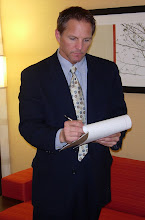The proposition is undeniable: you can’t build a great company without great people. But how many companies are as rigorous about hiring and comfortable evaluating job candidates as they are deciding on an investment proposal? The all-too-common reality, in far too many companies, is that hiring processes are poorly designed and shabbily executed.
Of course, making the commitment to hire great people raises an even more basic question: How do you know them when you see them? Over the last few years, a number of companies have asked themselves that question. They’ve analyzed what separates their winners from their losers, good hires from bad hires. These companies compete in a wide range of industries — from airlines to steel, computers to hotels — but they all arrived at the same answer: What people know is less important than who they are. Hiring, they believe, is not about finding people with the right experience. It’s about finding people with the right mind-set. These companies hire for attitude and train for skill.
The article proposes that by using the following four principles you can improve your chances of selecting the right person…..
- What You Know Changes, Who You Are Doesn’t - Popeye was right: "I y’am what I y’am." The most common — and fatal — hiring mistake is to find someone with the right skills but the wrong mind-set and hire them on the theory, "We can change ‘em." Davidson’s response? Forget it. "The single best predictor of future behavior is past behavior," he says. "Your personality is going to be essentially the same throughout your life." As evidence, he points to U.S. Air Force research on personality types that began in the 1950s. For decades, researchers tracked their subjects by observing their behavior and interviewing their families, friends, and colleagues. The conclusion? Basic personality traits did not change, Davidson says. "Introverts were introverts, extroverts were extroverts. The descriptions were constant."
- You Can’t Find What You’re Not Looking For - Bill Byham, perhaps the world’s foremost authority on hiring, is president and CEO of Pittsburgh-based Development Dimensions International (DDI) . He’s also the father of a hiring methodology that goes by many names ("Targeted Selection" is the most popular) but revolves around a simple idea: the best way to select people who’ll thrive in your company is to identify the personal characteristics of people who are already thriving and hire people just like them. In the Byham model, companies work to understand their star performers, identify their target behaviors and attitudes, and then develop interview questions to find people with those attributes.
- The Best Way to Evaluate People is to Watch Them Work - A few companies take this rule literally — none more so than steelmaking giant Nucor. In many ways, Nucor is to steel what Southwest is to airlines: innovative, fast-moving, eager to break the rules. One of Nucor’s best sources of new steelworkers are the construction workers who build its plants. Managers monitor their construction sites, look for plumbers and electricians who demonstrate the work habits they value, and then hire them. At Nucor, the dirty and dangerous task of building a steel mill is one long interview for jobs running it.
- You Can’t Hire People Who Don’t Apply - Companies that take hiring seriously also take recruiting seriously….. Companies that hire smart usually start their recruiting efforts close to home — with their own people. SGI’s Lane estimates that 65% of his company’s new hires began as referrals from current employees. It makes sense: it takes a certain kind of person to thrive at SGI, and those people tend to spend time (personally and professionally) with people like themselves.
One of the central tasks of leaders is the selection and development of people and teams. Leaders tend to recruit too hastily and take too long to remove those who are under-performing. The key to recruiting great people it to be clear about what you’re looking for in others. What are the characteristics of people who succeed in your team? Do you actively look for those characteristics in the people you’re looking to hire?



